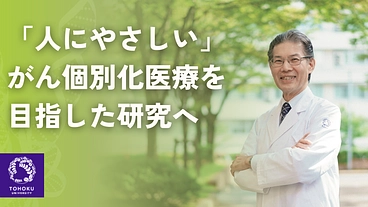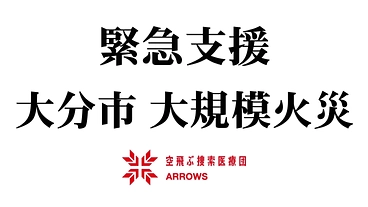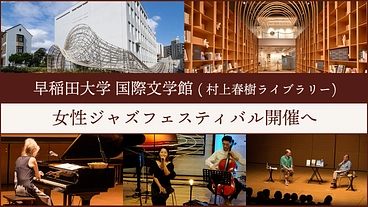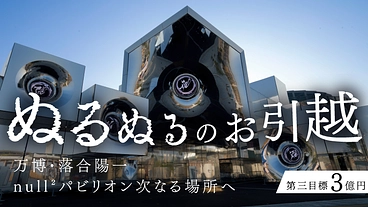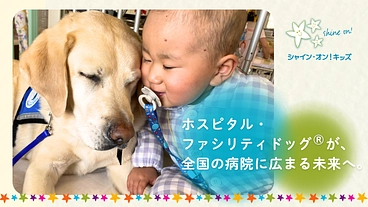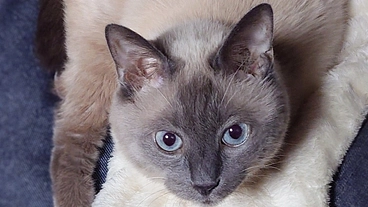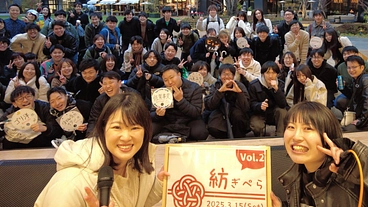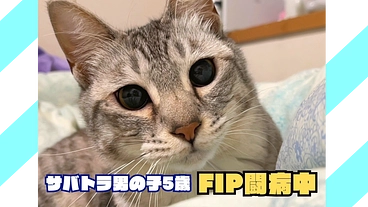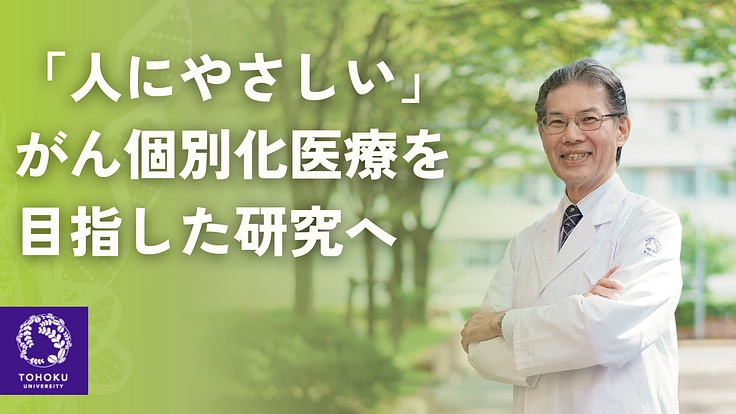
寄付総額
目標金額 30,000,000円
- 寄付者
- 390人
- 募集終了日
- 2023年6月20日
(English)Crowdfunding campaign for cancer research
Searching for Therapeutic Targets Leading to a New Era of Personalized Cancer Care and a Future of Cancer Control
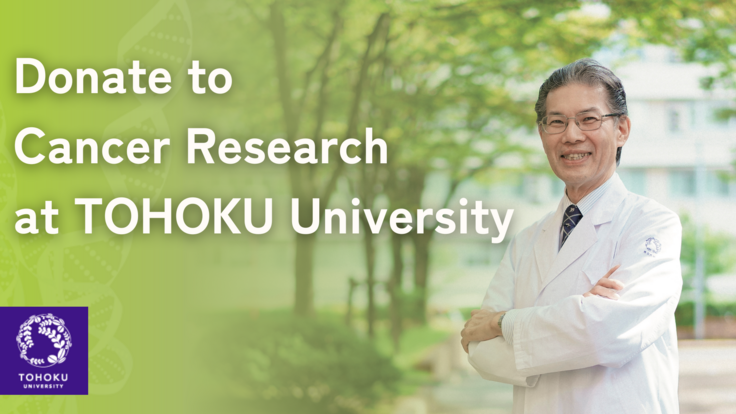
Introduction:
This project aims to raise a total of 30,000,000 yen for clinical research using blood and tumors donated by patients with various cancers at Tohoku University Hospital to develop new treatments through genome analysis and other comprehensive molecular analysis.
We are seeking donations of 30,000,000 yen in total to cover the cost of the research and the personnel expenses for the researchers and administrative staff working on the project.
Cancer is the leading cause of death in many developed countries, including Japan (Source: 2021 Vital Statistics, Ministry of Health, Labour and Welfare).
Cancer is challenging to treat once it has progressed, and the survival rate is meager at 10-30% in the most advanced stage IV cases (cases of metastasis or recurrence) (source: National Cancer Center Cancer Information Service), requiring the development of new treatment methods such as early diagnosis methods and anticancer drugs.
It has recently become clear that individual cancers are unique due to differences in genetic abnormalities and other molecular alterations and that there are individual differences in the effectiveness of drugs. Moreover, it is becoming clear that the effects are defined by genetic and specific molecular abnormalities in the genome, regardless of the organ type of cancer (lung, breast, colon, pancreatic, prostate, etc.), i.e., "cross-organ.”
To link new research results to more precise personalized medicine and move toward clinical application, it is necessary to develop "personalized medicine" that diagnoses these diseases, selects effective anticancer drugs, and spreads awareness of this concept.
Genetic mutations and other molecular changes in advanced cancers provide essential data that can serve as the basis for research for early detection and the development of new treatments and their optimization.
Your donation and support will help us meet the medical and social challenge of improving treatment outcomes for patients with advanced cancer.
Professor, Department of Clinical Oncology, Tohoku University Graduate School of Medicine
Chief, Department of Medical Oncology, Tohoku University Hospital
Chikashi Ishioka, M.D., Ph. D.
Table of contents:
1 What this project aims to achieve, and how will your donation be used
2 Personalized Medicine: Past and Future
3 Information on Tax Incentives
We will analyze tumor tissue, stool, and blood samples from cancer patients collected in the biobank at Tohoku University Hospital to discover bacteria and their metabolites that enhance the effects of anticancer drugs and reduce side effects.
The following studies are currently underway to achieve the goal.
・Development of clinical sequencing using cancer tissue and exploration of new diagnostic methods and new therapeutic targets
・Search for novel biomarkers and new therapeutic targets by analyzing humoral immune factors using cancer patient samples.
・Search for novel diagnostics and therapeutic targets by comprehensive proteome and metabolome analysis using cancer tissues.
・A retrospective observational study to evaluate the ability of DNA methylation status to predict sensitivity to anti-EGFR antibody drugs in second-line treatment of advanced and recurrent colorectal cancer.
We will focus on gastrointestinal cancers (esophageal, gastric, colorectal, pancreatic, biliary tract, etc.), head and neck, and sarcomas. Still, we will not specify the type of cancer by organ and conduct research to apply to cancers across organs.
Our goal is to utilize your donations for these studies and use the results to improve treatment outcomes for advanced cancer.
Even if the total amount of donations does not reach the target amount by the deadline, we will make up the difference by providing research grants to cover the difference and carry out the abovementioned activities.
*The implementation plan for the above clinical research has been reviewed and approved by the Ethics Committee of Tohoku University Graduate School of Medicine. The implementation of this project is scheduled to be completed by the end of March 2028.
Research Organization: Chikashi Ishioka, Masanobu Takahashi, Hidekazu Shirota, Hiroo Imai, Kota Ouchi (these 5 researchers are M.D. and Ph. D. at Department of Clinical Oncology, Tohoku University Graduate School of Medicine and Department of Medical Oncology, Tohoku University Hospital), and Toru Ishikawa (Manager of these office)
Genome analysis: Analysis of DNA sequences obtained from a patient's cancer tissue or blood.
Epigenomic analysis: Analysis of the presence or absence of DNA methylation (which inactivates cancer-suppressor genes) and modification of protein histones that fold and condense DNA molecules (which are involved in carcinogenesis).
Microbiome analysis: analysis of the type and amount of parasitic microorganisms (involved in cancer development, cancer progression, and the effect of anticancer drugs) in cancer tissue.
Metabolome analysis: analysis of the types and amounts of metabolites (derived from humans or bacteria parasitic in the body) present in cancer tissue and blood samples.
In recent years, personalized medicine has been developed. Each patient's constitution, type of disease, and type of the disease are examined in detail, and treatment is determined according to the results.
In particular, research on personalized medicine is progressing in cancer treatment, where genome analysis is being conducted to obtain information at the genetic level, which is then used in actual clinical practice.
Personalized medicine is already in place in which genetic mutations and molecular abnormalities of cancer cells are investigated, and anticancer drugs are determined for them. However, there is still plenty of room for development in personalized medicine. As an essential theme for Japan, it is an area where the further promotion of research and enhancement of the system is needed.
Research to date has revealed.
1. genetic abnormalities and cancer
Several mutations in the DNA of normal cells cause the cells to become cancerous. Among them, amplification and mutation of oncogenes, MYC, and RAS genes, and inactivating mutations of tumor suppressor genes, TP53 and APC, are known to be intensely involved in transforming cells into cancer.
Some of these gene mutations have been developed into anticancer drugs called molecularly targeted drugs that target the gene therapeutically. In addition to the genes already targeted, other genes are considered promising therapeutic targets, and research on these genes is being conducted daily.
2. other molecular abnormalities and cancer
In some cases, patients are born with mutations in genes that repair DNA damage or mismatches. In this case, a high rate of ovarian and breast cancer develops at a young age (hereditary breast and ovarian cancer syndrome: HBOC), as well as colon, stomach, bile duct, and uterine cancers (Lynch syndrome). These are also a type of loss-of-function mutation of cancer-suppressor genes.
In addition to mutations in oncogenes and tumor suppressor genes, various other intracellular molecular abnormalities that cause cancer have been reported. For example, carcinogenesis is caused by chromosomal abnormalities and abnormal fusion proteins. In addition, cells become cancerous when the synthesis of telomeres, which are protein complexes located at both ends of chromosomes, is activated by abnormal synthesis of the enzyme telomerase. In addition, abnormal DNA methylation in the promoter region that regulates gene expression inactivates cancer-suppressor genes, leading to the cancelation of cells. Recently, it has also been shown that chronic inflammation caused by microbial parasites can alter the epigenome, leading to carcinogenesis.
3. cross-organ cancer treatment
These genetic and molecular abnormalities can be found in any cancer, regardless of the type of cancer. For example, amplification of the HER2 gene is related to cell cancerous growth and malignancy. Trastuzumab, an antibody that blocks the HER2 gene, was initially studied in breast cancer and used as a treatment for breast cancer. Later, it was found that HER2 was also amplified in gastric, colorectal, and salivary gland cancer. Trastuzumab was effective in these cancers and is now available as a therapeutic agent. This concept is called "cross-organ cancer therapy.
The advantage of cross-organ cancer therapy is that it can administer anticancer drugs more precisely by targeting various genetic and molecular abnormalities, compared to the conventional administration of anticancer drugs specific to each type of cancer.
Cross-organ therapy can also be applied to rare cancers. The development of treatments for rare cancers takes a lot of time and money due to the small number of cases. Still, the application of cross-organ therapy can significantly improve the treatment outcomes of rare cancers. The Department of Oncology at Tohoku University Hospital provides many such cross-organ cancer treatments.
In the future, personalized medicine will be further researched. Research results will be obtained based on not only gene mutation analysis of cancer cells but also a more detailed analysis of genes and proteins, analysis of factors involved in the protein synthesis process, and comprehensive analysis of data (omics analysis) on metabolites produced by bacteria parasitic on the human body, etc. The results of our research will be obtained based on a comprehensive analysis of data (omics analysis).
From this, we can expect to make many discoveries that will benefit patients in cancer treatment, such as the development of highly effective anticancer drugs, the development of combination drugs that enhance the effects of anticancer drugs, and the development of new treatment methods that alleviate the side effects of anticancer drugs.
Your donation to this project will be considered a donation to Tohoku University and eligible for tax benefits.
*Only Japanese taxpayers are eligible for this program, and overseas taxpayers do not qualify for preferential treatment.
■Income Taxes (Earned Income Tax Credit)
Income tax deductions are available for donations exceeding 2,000 yen per year.
Amount of donation - 2,000 yen = income deduction
(The maximum amount of donations that can be deducted is 40% of gross income for the year in question.)
■Resident Tax
Donors residing in Miyagi Prefecture and municipalities (Sendai, Tagajo, Ishinomaki, Tomiya, Watari, and Onagawa) that have designated the University as a "corporation, etc., eligible for a donation tax credit" are entitled to a reduction in their inhabitant tax for the following year, in addition to the income tax credit.
(Amount of donation - 2,000 yen) x 4-10% = Resident tax credit
(The maximum amount of donations that can be deducted is 30% of gross income for the relevant year.)
*For 4-10% of the above formula
Donations designated by prefectures: 4%.
Donations designated by the municipality are 6%.
(10% for donations designated by both the prefecture and the municipality)
*Sendai City residents will receive a 2% prefectural inhabitant tax credit and an 8% municipal inhabitant tax credit. The total deduction percentage is 10%, the same as for residents of other eligible municipalities.
The total amount of the donation is deductible for tax purposes.
A "Certificate of Donation Receipt" will be sent to donors later.
The name on the donation receipt will be registered for the gift recipient.
Please note that a certificate of receipt is required for tax returns with your real name and current address (the address shown on your resident registration certificate), or in the case of a corporation, with your registered name and address.
(It is expected to be sent by the end of September 2023. The date of the donation receipt certificate will be the date of August 2023, when the payment is received from READYFOR to Tohoku University).
*We would like to make your donation to this project eligible for an award from the "Tohoku University Fund.”Please note that the Tohoku University Foundation may contact you shortly regarding issuing a certificate of receipt for your donation, the publication of your name on the certificate, and the award details. Please note that the Tohoku University Fund may contact you shortly.
If you have difficulty donating online,
Please get in touch with us at the contact information below.
Tohoku University Fund Office
E-mail:kikin@grp.tohoku.ac.jp
tel: 022-217-5058/5905
About this Study
This crowdfunding campaign requests donations for "the search for novel diagnostic methods and novel therapeutic targets for personalized medicine" and the maintenance of related research and research systems. In various analyses, we only sometimes obtain the expected results.
About Crowdfunding
Please note that regardless of whether or not the target amount is reached, the application for this project is confirmed once the donation is made and cannot be canceled afterward.
Messages received as "supportive comments" upon completion of the donation may be used to promote the acquisition of gifts for this project.
When you donate by bank transfer, we will ask you for your bank account information, but in principle, no refunds will be made due to our all-in policy. However, in the unlikely event that we cannot implement a project that we have introduced or promised on this website, or if the amount transferred exceeds the amount reserved or is insufficient to cover the additional amount to be transferred, we will use the bank account information for refunds. Please take a few minutes to fill out the form.
For details on the terms and conditions of this project's gift regarding [name listing], please refer to the link (https://readyfor.jp/terms_of_service#appendix) under "Support Agreement" under "Naming Rights, Message Listing, and Other Similar Returns" Please refer to to to to the "Support Agreement" at the following link () for details on the conditions for [Name Listing] gifts.
Handling of Personal Information
Tohoku University may send you reports and donation information (by mail, e-mail, etc.) in the future. If you do not wish to receive such information, please specify so during the crowdfunding donation process.
Contact: Department of Clinical Oncology, Tohoku University Graduate School of Medicine
E-mail address: toruishi@t-core.jp (Ishikawa)
*If you have difficulty donating online, please get in touch with us at the contact information below.
Contact: Tohoku University Fund Office
E-mail address: kikin@grp.tohoku.ac.jp
Phone number: 022-217-5058/5905
Project Execution Manager:
Chikashi Ishioka (Department of Oncology, Tohoku University Hospital, Tohoku University)
Date of completion of project implementation: March 31, 2028
Project Summary and Use of Funds Raised
Conduct clinical research on anticancer drug therapy and search for recent and candidate molecules that affect therapeutic efficacy by comprehensive molecular analysis (genomic, epigenomic, microbiome, metabolomic, etc.) of specimens (tumor, stool, and blood) collected from patients participating in clinical research. In addition, basic experiments will be conducted to verify the effect-enhancing mechanisms of candidate bacteria and molecules. Donations will be used for research expenses to conduct clinical research aimed at developing new treatments through genome analysis and other comprehensive molecular analysis, as well as personnel expenses for researchers and administrative staff working on this research project.
Profile
Chikashi Ishioka is one of Japan's first JSMO board certified-medical oncologists and has been the Professor of Medical Oncology at the Tohoku University Hospital since 2003. Chikashi Ishioka is one of Japan's first JSMO board certified-medical oncologists and has been the Professor of Medical Oncology at the Tohoku University Hospital since 2003.
He has also been the Director of the Cancer Center (since 2012), the Director of the Personalized Medicine Center (since 2017) and the Vice President (Has also been the Director of the Cancer Center (since 2012), the Director of the Personalized Medicine Center (since 2017) and the Vice President ( since 2015) of the Tohoku University Hospital, and contributed for promotion of cancer research and personalized medicine, development of the local cancer medical care as Representative Director of the Tohoku Clinical Oncology Research and Education Society (T-CORE, sine 2004) and the Administration Committee of the Tohoku Cancer Network (since 2008). Also, he has contributed to the training of the cancer medical care specialists such as medical oncologists through the activities as the Coordinator of the Also, he has contributed to the movement of the cancer medical care specialists such as medical oncologists through the activities as the Coordinator of the Tohoku Cancer Professional Training Promotion Plan (supportive by the MEXT Japan, since 2007).
He obtained an MD from the Tohoku University School of Medicine in 1984 and a Ph.D. (Doctor of Medical Science) from the Tohoku University Postgraduate School of Medicine in 1988. After clinical training in gastrointestinal and hematological oncology at Tohoku University and the associated hospitals, he studied molecular cancer genetics, TP53 function, and hereditary cancer as a genetic approach. After clinical training in gastrointestinal and hematological oncology at Tohoku University and the associated hospitals, he studied molecular cancer genetics, TP53 function, and hereditary cancer as a Research Associate in Dr. Stephen Friend's lab at the Cancer Center. Stephen Friend's lab at the Cancer Center of the Massachusetts General Hospital (MGH) and Harvard Medical School from 1992 to 1994.
He established a lot of functional assays of the cancer-related genes, including TP53, PTEN, MLH1, and BRCA1 genes. He evaluated the pathogenic significance of the missense mutations by using yeast and mammalian cells (Ishioka C et al. He established a lot of functional assays of the cancer-related genes, including TP53, PTEN, MLH1, and BRCA1 genes. He evaluated the pathogenic significance of the missense mutations using yeast and mammalian cells (Ishioka C et al. PNAS 1997, Krainer M et al. NEJM 1997, Shimodaira H et al. Nat Genet 1998, Osada M et al. Nat Med 1998, Nichols KE et al.) The achievements were adopted for the international database, such as the UMD TP53 database (Hamroun D et al. Hum Mut 2006) and the IARC TP53 mutation database (Petitjean A et al. The achievements were adopted for the international database such as the UMD TP53 database (Hamroun D et al. Hum Mut 2006) and the IARC TP53 mutation database (Petitjean A et al. Hum Mut 2007) and utilized for extensive international collaborative clinical studies (Iacopetta B at al. Clin Cancer Res 2006). He organized a lot of international collaborative studies with Dr. Richard D Kolodnar (UC San Diego), Dr. Daniel A Haber (MGH), and other scientists.
He has played essential roles in Japan's significant academic societies of oncology. Since 2019, he has been the President of the Japanese Society of Medical Oncology (JSMO). He was also the Director of the Japanese Society of Clinical Oncology (JSCO) from 2010 to 2013 and the Director of the Japanese Cancer Association (JCA) from 2015 to 2017. He has served on the editorial board of the Cancer Science and the International Journal of Clinical Oncology for an extended period.
His main research interests include chemotherapy for gastrointestinal cancer and other cancers and translational research such as the development of Recently, his research group has identified the genome-wide DNA methylation status is the predictive marker of anti-EGFR treatment in metastatic colorectal cancer (Ouchi K et al. Cancer Science 2015). His research group has also identified the novel synthesized depsipeptides as HDAC/PI3K dual inhibitors (Saijo K et al. Cancer Science 2012). It has Cancer Science 2012) and has worked on developing one of the newly synthesized inhibitors as a novel molecular target drug supported by AMED Japan (Saijo K et al. Science 2015).
ギフト
3,000円+システム利用料

3千円:これからの個別化がん医療に向けて
・お礼状
・寄附金領収証明書
・ご芳名を東北大基金HPに掲載(ご希望の方のみ)
▽寄附金領収証明書
2023年9月末までに送付します。領収書の日付は東北大学に入金がある2023年8月の日付になります。
- 申込数
- 107
- 在庫数
- 制限なし
- 発送完了予定月
- 2023年9月
10,000円+システム利用料

1万円:これからの個別化がん医療に向けて
・お礼状
・寄附金領収証明書
・ご芳名を東北大基金HPに掲載(ご希望の方のみ)
▽寄附金領収証明書
2023年9月末までに送付します。領収書の日付は東北大学に入金がある2023年8月の日付になります。
- 申込数
- 153
- 在庫数
- 制限なし
- 発送完了予定月
- 2023年9月
3,000円+システム利用料

3千円:これからの個別化がん医療に向けて
・お礼状
・寄附金領収証明書
・ご芳名を東北大基金HPに掲載(ご希望の方のみ)
▽寄附金領収証明書
2023年9月末までに送付します。領収書の日付は東北大学に入金がある2023年8月の日付になります。
- 申込数
- 107
- 在庫数
- 制限なし
- 発送完了予定月
- 2023年9月
10,000円+システム利用料

1万円:これからの個別化がん医療に向けて
・お礼状
・寄附金領収証明書
・ご芳名を東北大基金HPに掲載(ご希望の方のみ)
▽寄附金領収証明書
2023年9月末までに送付します。領収書の日付は東北大学に入金がある2023年8月の日付になります。
- 申込数
- 153
- 在庫数
- 制限なし
- 発送完了予定月
- 2023年9月
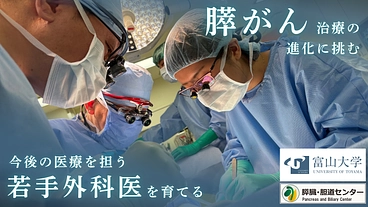
医療の未来を守り、育てる。膵がん治療の開発・力ある若手外科医の育成
- 現在
- 17,613,000円
- 寄付者
- 350人
- 残り
- 16日

食料支援を行うフードバンクを支えたい|マンスリーサポーター募集中!
- 総計
- 62人

1頭1頭と向き合い続けるために。引退馬たちに安心安全な新厩舎建設へ
#観光
- 現在
- 73,873,000円
- 支援者
- 6,378人
- 残り
- 33日
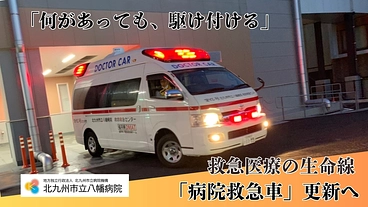
何があっても、駆けつける。救急医療の生命線「病院救急車」の更新へ
- 現在
- 25,427,000円
- 寄付者
- 294人
- 残り
- 29日
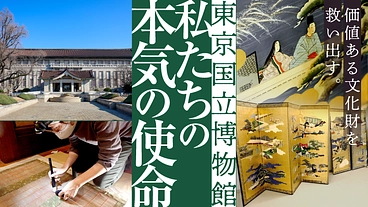
東京国立博物館|価値ある文化財を救い出す。源氏物語図屏風、修理へ
#伝統文化
- 現在
- 59,495,000円
- 寄付者
- 2,846人
- 残り
- 30日
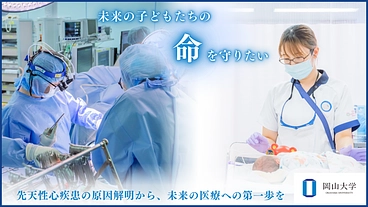
生まれつきの心臓の病気「先天性心疾患」 遺伝子解析から未来の医療へ
- 現在
- 8,403,000円
- 寄付者
- 242人
- 残り
- 30日

緊急支援|フィリピン地震へのご支援を
- 現在
- 1,628,000円
- 寄付者
- 222人
- 残り
- 11日

ワクワク夏休み!食事や遊びから、学びを得られる教室を開きたい
- 支援総額
- 1,043,000円
- 支援者
- 77人
- 終了日
- 6/29
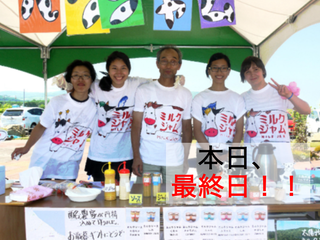
みんなで作る!太陽牧場の「自然に優しい」キャンプサイト
- 支援総額
- 540,000円
- 支援者
- 41人
- 終了日
- 6/28

文様に導かれた旅。映画『フィシスの波文』上映応援プロジェクト
- 支援総額
- 5,875,000円
- 支援者
- 188人
- 終了日
- 3/31

歴史的な木製学校家具を救え!九大什器保全活用プロジェクト
- 寄付総額
- 4,134,000円
- 寄付者
- 225人
- 終了日
- 7/31
校舎のない全寮制の「私立モテアマス学園」を開校したい!
- 支援総額
- 682,000円
- 支援者
- 79人
- 終了日
- 8/31
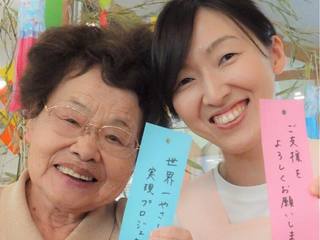
認知症の人が笑顔になれる「世界一やさしいレストラン」を開催!
- 支援総額
- 613,000円
- 支援者
- 54人
- 終了日
- 7/31

